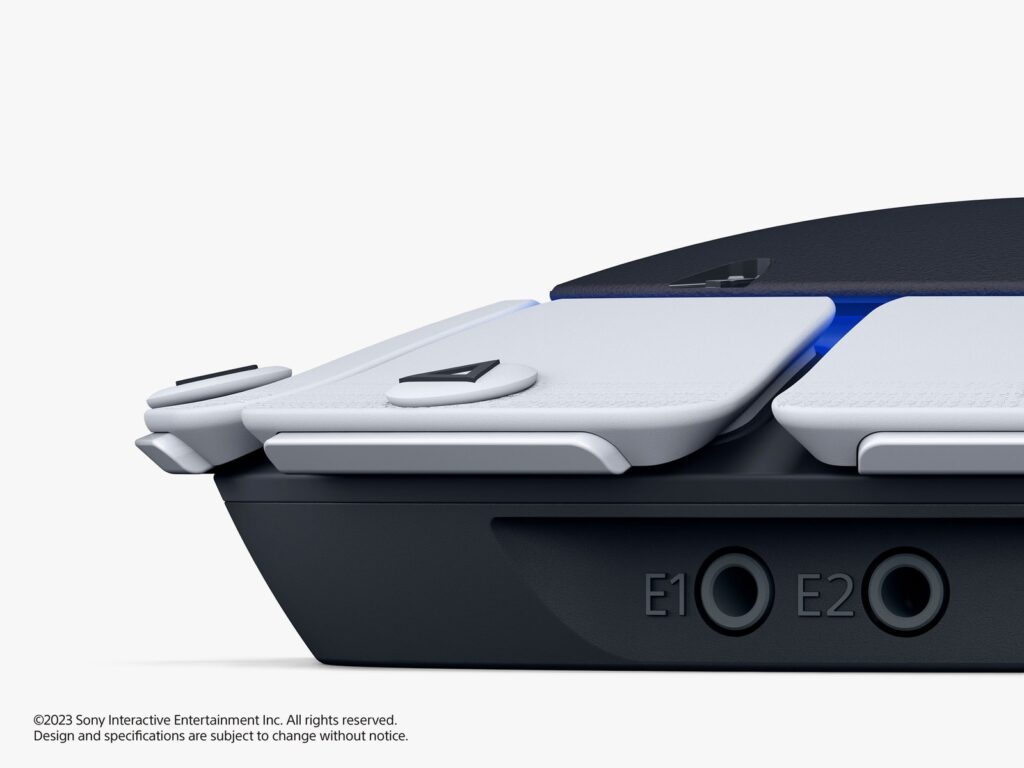“Our aim for Project Leonardo is that it enables many more players to enjoy the remarkable games that PlayStation Studios and our development community are creating for PS5,” Ryan says. “Millions of gamers play games to escape into a fun experience, build new friendships, or hang out together. The opportunity to make gaming accessible to more players is something all of us at SIE are incredibly passionate about.”
The collaboration between disabled individuals and PlayStation is also indicative of the industry’s commitment to furthering accessibility. Project Leonardo shares similarities with Microsoft’s Xbox Adaptive Controller. On Xbox and Windows systems, players can activate a feature called Copilot, allowing them to connect two controllers that act as a single device. For physically disabled players who struggle to reach certain inputs or even press specific buttons, the opportunity to choose is crucial. In a press release, a Sony Interactive Entertainment spokesperson explained the mechanics behind PlayStation’s version of Copilot:
Project Leonardo “can be used as a stand-alone controller or paired with additional Project Leonardo or DualSense wireless controllers. Up to two Project Leonardo controllers and one DualSense wireless controller can be used together as a single virtual controller, allowing players to mix and match devices to fit their particular gameplay needs or to play collaboratively with others. For example, players can augment their DualSense controller with a Project Leonardo controller or use two Project Leonardo controllers on their own. A friend or family member can also assist by helping to control the player’s game character with a DualSense controller or a second Project Leonardo controller. The controllers can be dynamically turned on or off and used in any combination.”
Aside from the ability to use more than one of the new controllers, the new device can also be paired with external third-party buttons and switches to enhance its overall accessibility. Sony didn’t say whether Project Leonardo will be compatible with the Logitech Adaptive Kit or what PC interoperability there will be, or even if Project Leonardo will be the device’s final name when it goes to market. But more alternatives mean that physically disabled players won’t be restricted in their setups. And, as Jim Ryan notes, that’s the goal.
Courtesy of Sony
With more games, and now consoles, open to all gamers, including disabled individuals, players can explore and experience the same pop-culture-defining moments that games continue to create. Project Leonardo is just one tool in an ever-growing arsenal of accessibility. But for physically disabled people who are unable to use a PS5, this controller will bridge the gap.
“Our mission is to use technology and innovation to make gaming more accessible for everyone,” Ryan says. “We’re working toward a future where players of all abilities can share in the joy of gaming. Whether through in-game accessibility settings, platform UI features, or new products like Project Leonardo, our PlayStation Studios and product development teams are deeply passionate about making that a reality. Our hope is that the gaming industry will become even more inclusive, and we’re grateful to play a part in this journey.”

